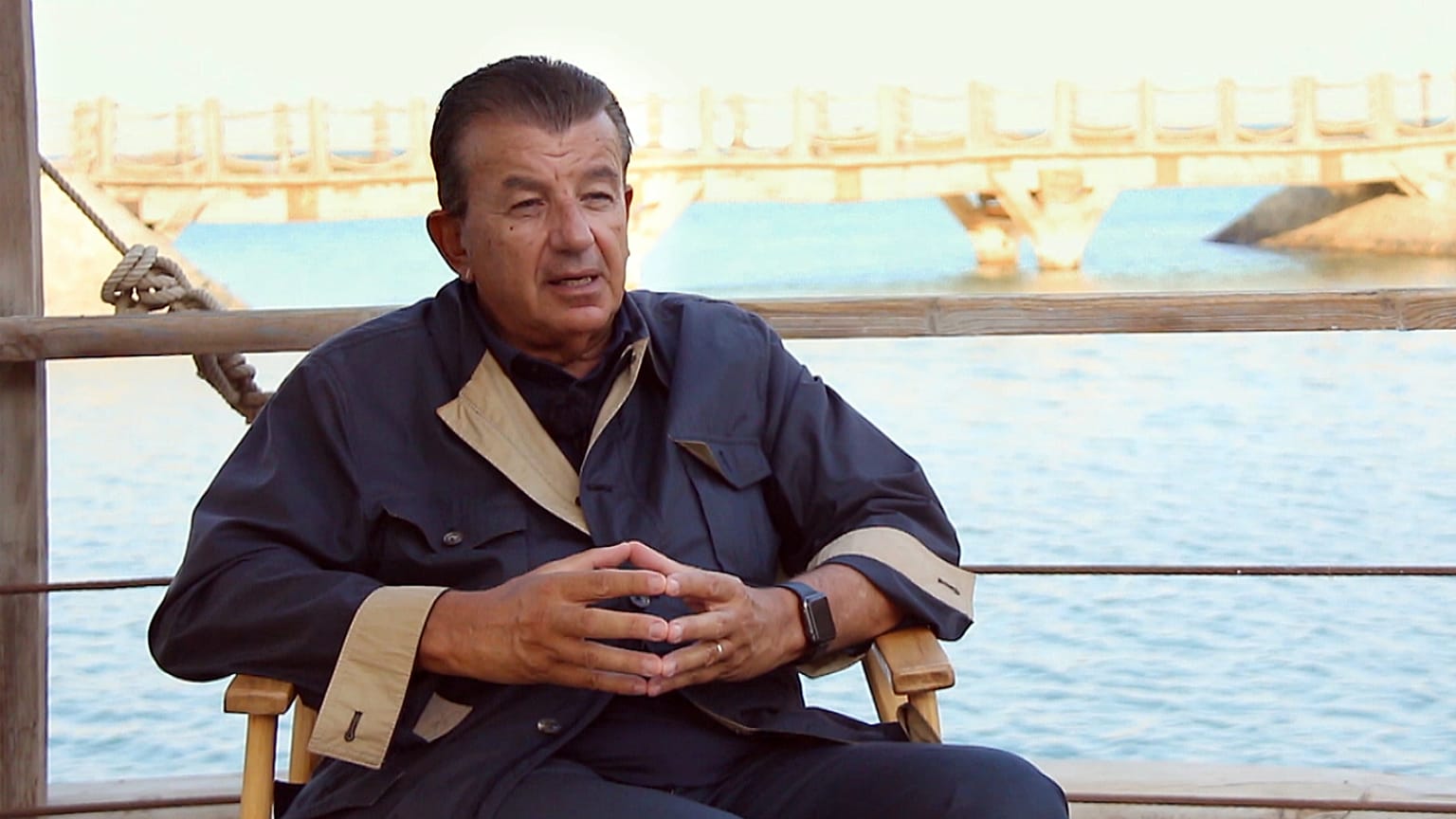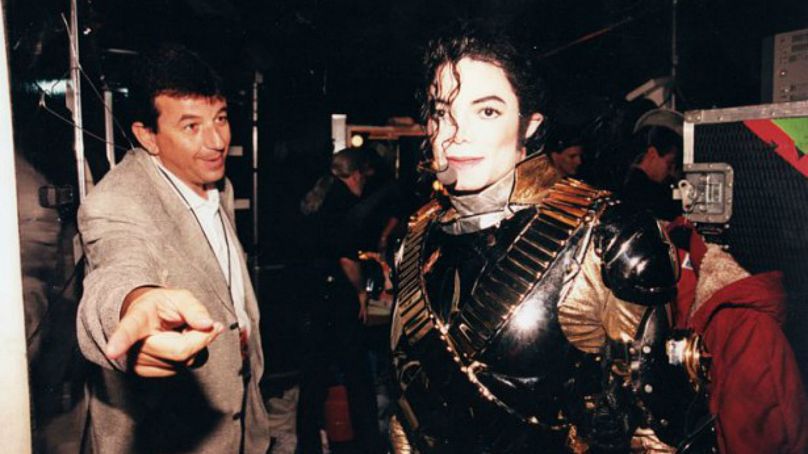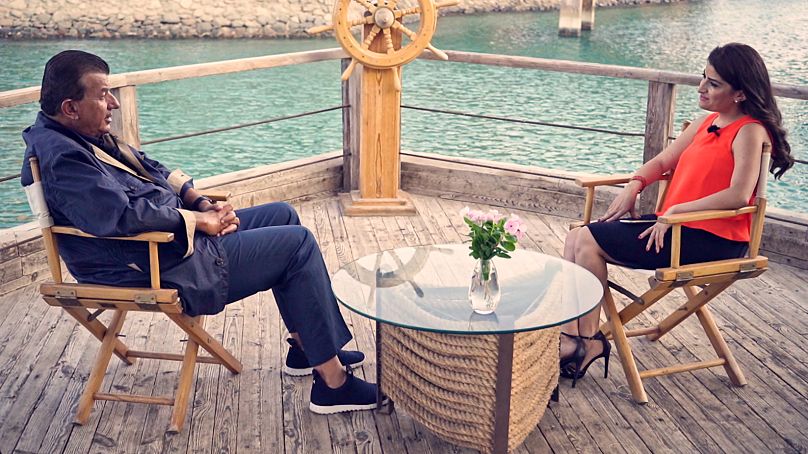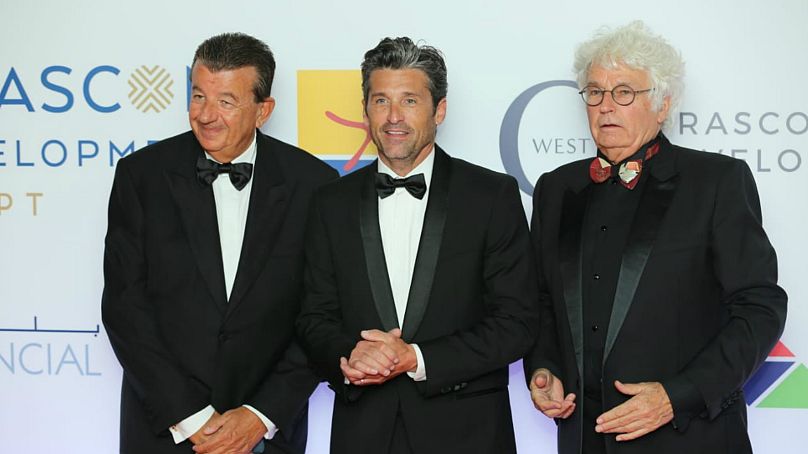Tunisian producer Tarak Ben Ammar has been in the international movie business for almost 50 years.
Tunisian producer Tarak Ben Ammar has been in the international movie business for almost 50 years.
 ADVERTISEMENT
ADVERTISEMENT
 ADVERTISEMENT
ADVERTISEMENT
Back in the 1970s, he introduced George Lucas to the idea of shooting the first Star Wars movie (Star Wars: Episode IV - A New Hope, 1977) in Tunisia.
Since then, he’s helped produce more than 70 other movies and attracted particular attention for becoming the worldwide distributor of The Passion of The Christ (2004).
He also worked as the manager of Michael Jackson's HiStory World Tour from 1996 to 1997 and produced the historical film Day of the Falcon (2011), set in 1930s Arabia and starring actor Antonio Banderas.
Ben Ammar says he has recruited around 875,000 people throughout his long career, and today he’s urging Arab leaders to invest more in the region’s film industry.
WHAT WILL IT TAKE FOR ARAB CINEMA TO BOOM?
In an interview with Euronews, Ben Ammar said that for the region’s film sector to be viewed in the same regard as Hollywood and Bollywood, there needed to be greater unison between MENA countries.
“If we organise ourselves - thanks to digital, thanks to internet - a Kuwaiti can see a Tunisian film, a Moroccan can see a Yemeni film, an Iraqi can see a Lebanese film,” he said. “So, in reality, we can do what India does in its own market.”
He added that the industry’s potential success relies upon a young Arab audience’s support of, and appetite for, regional productions.
“Let’s first be appreciative of our culture, our language and our people, especially if more than 65 percent are under 30 years old.” he said.
One of the hot topics for the cinema industry in the region is Saudi Arabia, which has recently seen movie theatres reopen. Local cultural productions are also on the rise thanks to the modernisation and reform of the kingdom’s entertainment sector.
“I’m very much in favour of what Saudi Arabia is doing and the Arab world,” said Ben Ammar. “Abu Dhabi, Kuwait, Dubai, Qatar and Jordan have a lot of cinemas - multiplexes have opened elsewhere before. But Saudi, being the biggest market, this should be a great opportunity for Arab filmmakers to talk to the Saudi youth.”
“I feel like cinemas are important because you see the film on a big screen, but seeing it at home is also a great opportunity,” he added.
Ben Ammar went on to say that the profile of Arab cinema around the world could be elevated by the casting of multicultural actors. He added that assigning roles to these actors, however, depends largely on the dynamism and audacity of those who work in the industry.
“I think diversities will always exist and it’s up to the filmmakers to have the courage to show that diversity,” he stated.
ARE DIGITAL PLATFORMS A THREAT TO THE INDUSTRY?
Ben Ammar believes that digital distribution, via online platforms like Netflix, is a gift for both the audience and the industry. He says it encourages producers and writers to create ever more engaging plots.
“The basis is that the story has to be good,” he said. “Whether it’s on TV or online, or on DVD or on iPhones, the audience has to be captivated - to do what the young people do now, binge.”
“They (the audience) can have access to anything, anywhere and it’s a wonderful opportunity for filmmakers and producers to improve their talent and to have success,” he went on to say.
WHAT ROLE SHOULD FILM PLAY IN THE MIGRATION CRISIS?
According to the Tunisian producer, the European migration and refugee crisis is a film-worthy topic.
“Films with the political tensions of immigration, isolationism, racism, wars - filmmakers are attracted to express their opinions of that event, of that country,” he told Euronews. “That’s good, because people will see what’s happening in the news, but when they see the films maybe they will be touched emotionally.”
“Cinema has a real role in making people understand the issues of today, the issues of yesterday or tomorrow,” he added.
WHAT ARE BEN AMMAR’S FUTURE PROJECTS?
Tarak Ben Ammar recently worked with French director Jean-Jacques Annaud and American actor Patrick Dempsey to make the drama miniseries The Truth About the Harry Quebert Affair (2018).
Since this project, the producer has found working in television enlightening, sometimes more so than film.
“It allowed me to understand that television is a very noble art, not worse or better than cinema,” he told Euronews. “All it gives you is more time to tell a story to millions and millions of people. That, cinema cannot do.”
“With this experience, which is successful, I’m preparing some very big projects now. Historical projects, that I want to do, because they are difficult in the cinema,” he added “Television allows you to do it, because to tell history you need more time.”
Ben Ammar also said he hopes to keep producing from the region.
“I’m looking at projects that always come back to my world,” he said, “My country is Tunisia. I have two big projects to be shot there and I would also like to do something in Egypt.”
The Egyptian production, which will be carried out in collaboration with Dempsey, is set to be filmed in the North African country as well as in the United States.
SEEN ON SOCIAL: SPOTLIGHT ON ARAB CINEMA
Filmmaker Malak is pictured in Abu Dhabi with the crew of her first short film, using the hashtag #SupportArabCinema.
Lebanese writer-director Lucien posted these stills from his latest film Heaven Without People (2017).
And Egyptian actor Shadi Alfons is pictured during a recording session for his upcoming movie.

















